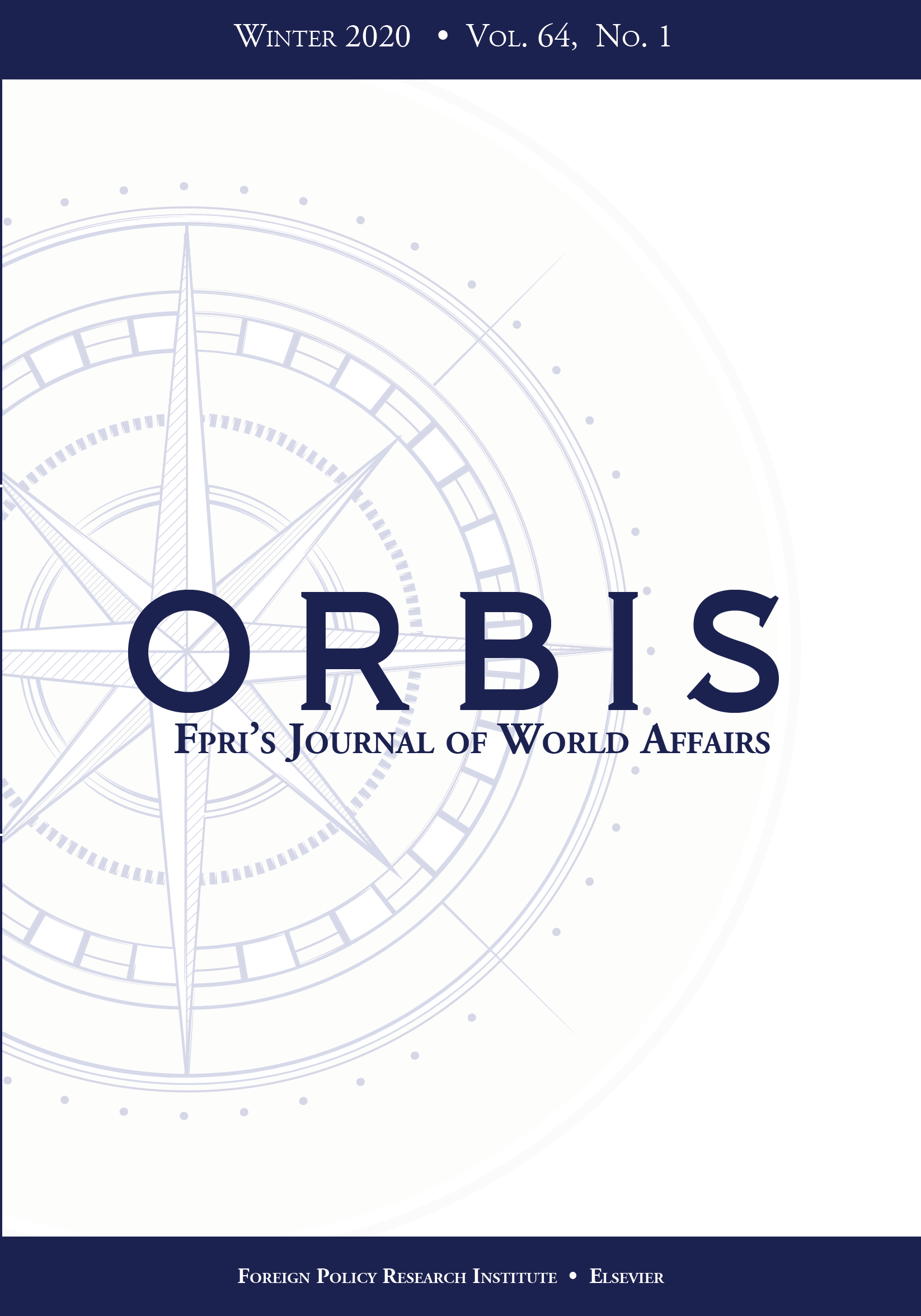A nation must think before it acts.
The Foreign Policy Research Institute was founded by Robert Strausz-Hupé, a leading light among geopolitical thinkers. Thus, Orbis always has been predisposed to publish articles that stress the importance of the geopolitical perspective in world affairs. In that spirit, we begin our winter issue by marking the centennial of the publication of Sir Halford Mackinder’s seminal contribution to classical geopolitics, Democratic Ideals and Reality, by Geoffrey Sloan. As the author argues, many of Mackinder’s concepts remain relevant today.
Next, Walter A. McDougall laments that in our “new Cold War” against the People’s Republic of China, the “civil religion” that inspired Americans throughout their first Cold War effort has today ceased to exist. This vacuum will make it very difficult for the United States to confront a post-humiliation, post-Maoist, imperial, and authentic China.
Chris Miller examines the Russian Federation’s current “turn to the East,” questioning whether it will have lasting significance. He notes that although Russia has often “turned to the East”’ in the past, geopolitical and economic factors have hindered Russia’s Asian pivots and caused the Kremlin to turn back toward Europe.
Thomas J. Shattuck looks at “transitional justice” in Taiwan. As a country moves from authoritarianism to democracy, how does it deal with human rights violations by the old regime? He argues that while other countries, e.g., Nazi Germany, South Africa, Warsaw Pact countries, South Korea, Spain, and many countries in Latin America, successfully have confronted the problem, Taiwan has not.
Gawdat Bahgat addresses the evolution of war from traditional military action to “gray zone” operations, activities that although coercive and aggressive in nature, are designed deliberately to remain below the threshold of conventional military conflict. One major arena in this gray zone is the cyber domain. This author examines how the Islamic Republic of Iran, the Kingdom of Saudi Arabia, and Israel have developed and utilized cyber warfare capabilities.
Lieutenant-General Jonathon Riley served in Afghanistan and Pakistan from 2005 to 2009 as the senior Coalition officer in U.S. Central Command and later as the Deputy Commander of North Atlantic Treaty Organization’s (NATO) International Security Assistance Force (ISAF). In this piece, he recounts his experiences and impressions of this turbulent region.
Using evidence from the Syrian Civil War, Barak Mendelsohn examines the question of why some armed non-state groups employ foreign volunteers while others do not. He identifies four variables—political considerations, operational needs, organizational capacity, and ideational fit—that shape armed non-state actors’ choices concerning foreign volunteers and presents an original theory for how these variables interact.
Paul Bracken argues that the framework for analyzing nuclear issues during the Cold War are inadequate for understanding today’s period of “nuclear multipolarity.” He develops a framework for analyzing this global system, underscoring how advanced technologies —cyberwar, drones, and anti-satellite weapons—complicate the situation.
Lukas Milevski notes that the West did not have to think about strategy in the Baltic context until after Russia’s annexation of Crimea in 2014. What would happen if Russia attempted the same thing in the Baltic? Although the Baltic question has been addressed, most research has focused on operational and logistical issues. Now, strategy must come to the fore. In this article, the author highlights two major strategic considerations: the problem of sanctuary and the importance of Western honor, particularly as both relate to war termination. Russia as a sanctuary puts a political limit on NATO’s ability to coerce Russia militarily, whereas considerations of honor may prove an insufficiently strong motive to sustain active Western participation in a hypothetical war over the long term.
Finally, John Fonte reviews Colin Dueck’s Age of Iron: On Conservative Nationalism.




